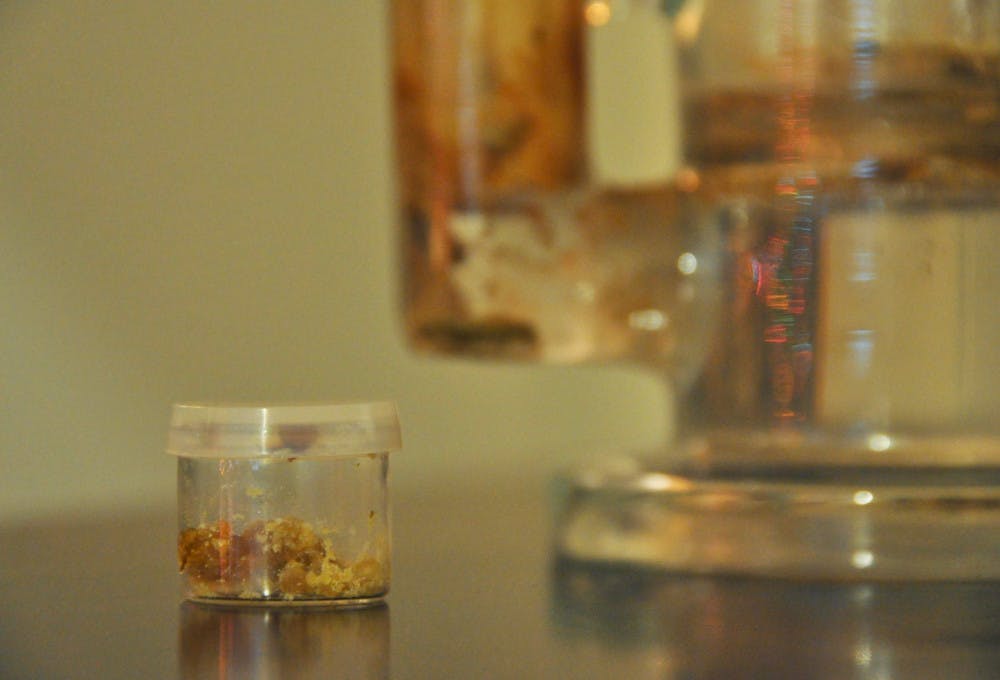Washington State representatives have introduced a bill to the state legislature that would restrict the legal sale of high-potency cannabis concentrates and related products, in some cases reducing THC potency as much as 80%.
In the first read in the House on Jan. 15, House Bill 2546 would limit the sale of cannabis concentrates to recreational users, requiring the potency of all products to have a cap of 10% THC.
While not yet passed, the bill is scheduled for a public hearing on Thursday, Jan. 30. Among the 23 state representatives that drafted the bill, two represent portions of Whatcom county: Democrat Debra Lekanoff and Republican Luanne Van Werven.
Concentrate is a blanket term for items such as wax, oils, shatter and dabs, which generally contain 70% to 90% THC. They make up 40% of the legal cannabis market.
The bill cites an association between high-potency marijuana and psychotic disorders as a leading principle for the bill’s creation. According to a 2019 study, daily high-potency cannabis use led to higher odds of contracting psychosis.
Mia Gover, lead medical consultant at Satori Recreational Cannabis, said associations between concentrate use and psychotic episodes unfairly target the recreational marijuana market.
“In general, yes, there is a correlation between heavy cannabis use and psychosis that’s related to schizophrenia,” Gover said. “What’s not known is where the causation is. We also know that there’s a link between alcohol and psychosis or, for example, Xanax and prescription medication … so it seems very unfair targeting out just concentrates in particular.”
Gover said the bill would lead to the dilution of products in the cannabis market, which would adversely impact the quality of the product.
“You’re basically talking about adulterating a pure product in order to decrease the proportion of THC,” Gover said. “At the end of the day, this is still a product that’s for inhalation. No, I don’t want to inhale whatever diluent or whatever additives they’re going to add to make it legally compliant.”
According to Emily Daley, assistant manager at Western Bud’s Bellingham location, concentrates make up a large percentage of sales at most dispensary locations.
“Of day to day operations, at least 45% of sale are concentrates and cartridges,” Daley said. “A lot of the time what I worry about is the people who need this high concentrated THC so they’re not smoking 24/7 to treat whatever ailment they have.”
Daley said despite higher potency concentrates being available to medical marijuana card holders, they’re becoming more difficult to acquire.
“The need for a med card is super obsolete,” Daley said. “So, this is going to be pretty damaging to a huge chunk of people who need that care, but for whatever reason, can’t literally afford to jump through those hoops.”
Recreational user Sam Burrows said the reduction in potency would make concentrate ineffective.
“My tolerance is so high at this point, that anything at 10% would not do anything,” Burrows said. “Because even the flower is more than 10%, so it would be ridiculous.”
Gover said if high-potency concentrate were banned, black market solutions could become the go-to for otherwise legal users.
“It was made specifically illegal to do extractions at home, but of course people still do it and sell it on the black market,” Gover said. “That demand is about to go way, way up. You’re going to see all of these legal, licensed producers just straight up go out of business because there’s so many of them that really all they do is make concentrates ... 40% of sales are just going to disappear.”
The bill comes near the end of a 120-day ban on flavored vape products in Washington, which lawmakers are hoping to turn into a permanent ban. The bill cites a major increase of nicotine use in youths as a driving force in its development.






